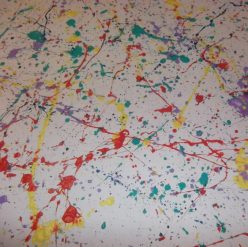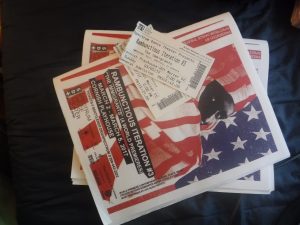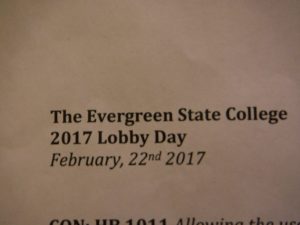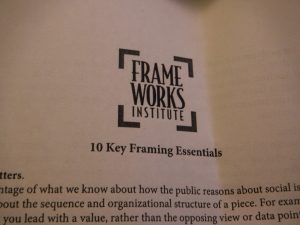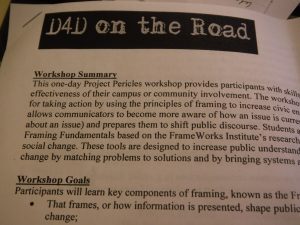ComAlt
Sarah Williams
End of Quarter Summation Paper
Zoe Wright
Multiple Narratives, Art, and Social Justice.
This aspect of this quarter’s work has been primarily amorphous, and very thought based. It’s something that doesn’t come together as feeling like it’s been work until the last moment, and then you have interesting connections and pieces fit together in ways you didn’t know they would. This quarter has solidified my understanding of how to find connections and find the ways each seemingly disparate subject touches another subject. I started out at the beginning of the quarter with the question “why is it important to study social justice and community relationship building?”. As the quarter has progressed, I’ve broadened my ideas to include why interdisciplinary or unconventional forms of education are important, and why it’s important to pay attention to art, performance, and informal or popular conversations around social justice and education issues. This paper provides a broad answer to these questions through discussions of what I’ve learned through the various conversations I’ve explored over the quarter, and why they have been important to my education and to the way I will consider and act on further education.
I’ve spent much of this quarter paying attention to the various ways people communicate and learn with each other in ways that wouldn’t be traditionally considered learning or getting education. I’ve read portions of the books Of the People, by the People; The Case For Participatory Economy, and Becoming A Study Ready College. I’ve read articles around social justice issues, current events, and the way various communities are building social justice languages and sharing them. I’ve watched videos that take a formal presentation speaking format, such as TED videos, and I’ve watched more personal discussion or satire videos. I’ve talked with people, and I’ve witnessed art and performances. I’ve attended workshops and lectures. I’ve done my best to pay attention to what is happening around me in the world.
One of the big critiques of higher education through colleges and universities is that you end up in a very protected, very homogenous idea bubble. That you don’t get challenged enough to speak with people outside your circle or deal with issues outside your circle, and you can start to expect certain language will be understood by everyone when it will not be. It can create a kind of language barrier.
If you think of highly scientific and technicial positions, there is a lot of jargon that happens within those positions because everyone in that circle will know what that jargon means. But anyone outside of that circle will be guessing or misinterpreting the meaning based on what jargon words mean in other areas. People who can translate jargon into terms anyone can understand, like tech writers, are very important in breaking this language barrier.
One of the workshops I attended was called Debating For Democracy, and was on the topic of framing issues. There were several big takeaways from that day of discussion. Depending on the results you want to achieve, some of the things to keep in mind are starting from the beginning of your issue. You’ve spent years and time and effort thinking about your issue and all its intricacies, but the person you’re speaking about it with likely won’t have, and won’t understand why your issue is important or connected to something they care about if you don’t start from the beginning. You want it to feel like there is tangible action that will make a difference and can be taken, because if everything is too big and too scary, nothing productive can be done. And you want to focus on broad, systemic ideas, rather than individualized or episodic stories. You don’t want to talk about one person who had an unfair experience, you want to talk about why certain people are far more likely to have that same kind of unfair experience in different circumstances.
During another workshop around privilege and recognizing privilege and being aware of privilege dynamics around you, there was a lot of discussion of development. For this workshop we discussed target status and agent status, places where a person is likely to be targeted as outside the norm and with less power, and places where a person is likely to have more power and be within the norm. There’s different ways you can be aware of those dynamics, and you can be aware of them at any point in time in different ways. So a lot of our discussion was on how that awareness of dynamics can work if you know it’s there and can recognize where you are at that particular moment, and where the person you’re talking to is. Because in essence, recognizing those stages was understanding what kind of language you needed to use to have the outcome you wanted. If you were aiming to educate and the person you were talking to is completely ignorant of terms like white privilege or oppression, it’s going to be a very different type of conversation than if they do have a basic understanding of those or other terms.
This is why I’ve found it very important to listen to all kinds of conversation and communication on all levels this quarter, because being aware of the kind of language that’s being used to have conversations on the subject you want to have conversations about is incredibly important.
It’s also why I feel that working on creating more available access to education is important. You want to have any many people getting the opportunities to learn what they want as possible, because that benefits everyone. You want there to be a broad mix of ideas and minds and experiences, on campus or anywhere else, because having to change and adapt your ideas to include others is incredibly powerful to developing messages and ideas that can cut across boundaries and create change. And to me, access to education doesn’t always have to mean access to formal, traditional, higher education as we think of it now. There are many ways to get a very good education that always involved that type of school. New methods of teaching and learning together are being used every day, and technology that provides greater geographical access to people to discuss different ideas with is definitely part that. There is more to education than intellectual book learning.
The book Becoming A Student Ready College is based on the idea that colleges and universities should meet students where they are experientially, rather than wanting students to have already achieved the criteria for being a perfect student. If that kind of model were to take hold, it would create a much greater access to education for a lot more students have it available to them now. However, while this book does briefly mention how your life experiences can impact your educational success, there isn’t a deeper probe at intersectionality, and much of the discussion is centered on very theoretical ideas rather than concrete actions and steps that can be taken. It’s hard because it’s not a model that exists yet, or one that only exists in a few small ways, but it does make it frustrating when all that is being done is thinking about how to think and talking about how to think.
One idea that I have come across during my research project for the Trans and Queer Center this quarter is the idea of a counterspace. In my understanding, it is a safe space that has taken a further step and is used as a foundation of safety and solidarity to put in work on creating social change. I love the idea of a space that is not only a safe place to be and express yourself, but also a place where you can find strength to do the difficult and stressful work that creates change. I’ve discussed at some point over the quarter an experience I think was as close as I have come to experiencing such a place and atmosphere. That was at the dragshow I attended on the night of or day after the Inauguration. The space that show created was very much a place for celebration, for expressions of anger, and for acknowledgment that there would be battles ahead and that this performance and community building time would be part of what would give all of us in that space the power to carry on.
To go in hand with the idea of counterspaces, I’ve experienced several deeply moving performances over the quarter that have created quiet space for reflection and acknowledgment of other’s experiences and the many ways you can share experiences and have different experiences at the same time.
These performances for me have tied into the ideas of media and other forms of representation and creation of multiple narratives. In watching the musical Allegiance you can see how each characters experiences their need to fight for their freedom and their happiness and their lives, and you can see that each character sees each other character’s actions in very different lights based on their own decisions. It was a really powerful and richly potent way to highlight that people may struggle for the same common goal in ways that are entirely opposite each other and perhaps may work against each other because there isn’t the right kind of communication happening. To highlight that way of multiple narratives being powerful and true in such a way was truly beautiful. Because there is danger in having a single narrative that describes an entire people, it’s over simplifying and generally not a good narrative that’s being told. There are few role models and it makes it seem like there are few prospects.
One of the things that I wanted to hold onto over this quarter, was the idea of not discounting the power and message of something just because it is fiction, or just because it is art. There are many conversations to be had over art and fiction’s role in change and social movements, but that it has a role is undeniable. Don’t discount the powerful things you can learn from books, movies, art, and performance.
I have grown up with the somewhat odd sounding idea around me that fiction can have a more potent element of truth than reality can at times. Of course that’s then a discussion on what truth is that’s entirely too complicated and unanswerable for this moment, but still, fiction can distill powerful, expressive ideas from experience.
People make meaning from stories, so just because it’s a story doesn’t mean it shouldn’t make meaning for you. To practice compassion and empathy and powerful emotions around powerful artwork and performance, and remember that those powerful emotions can be carried over into other aspects of your life feels like an incredible benefit.
Fiction can be used to satire and exaggerated things that are wrong, as well as highlighting things that are right. Science fiction, or even fantasy, as ways to critique issues in our society is a very real and fairly frequently used device. Fiction can also form a brilliant place to develop thinking on topics that fall very much in ‘gray areas’ that force your mind to be complicated in the way you make up and develop your morals, ethics, and ideals. With intention fiction can become proponents of intersectionality by exploring diverse, fully fleshed out character’s with identities that are real and include more than one stereotype or trope, or better yet of course are not based on stereotype or trope at all.
In listening to TED Talks about how to work on changing narratives through action, or art, or in certain decisions, in listening to Angela Davis speak live, and then listening to a conversation between her and Toni Morrison about prison and education and the commodification of libraries and knowledge, in reading even part of By The People, For The People, I have found incredible connections between ideas of intersectionality, interdisciplinary diverse types of education, and art, performance, and story.
I feel that everyone should know a little bit and think a little about all of those connections and intricate dynamics. And that if you do, and if you realize you are and you should and you keep doing it, then you’re going to get a pretty good education, whether you’re in a college or not. And because I have that feeling and I’m working to recognize those principles, I’m very satisfied with the work that I have done this quarter, and the connections I have made between informal means of communication and learning, and their importance to formal means of communication and learning.
